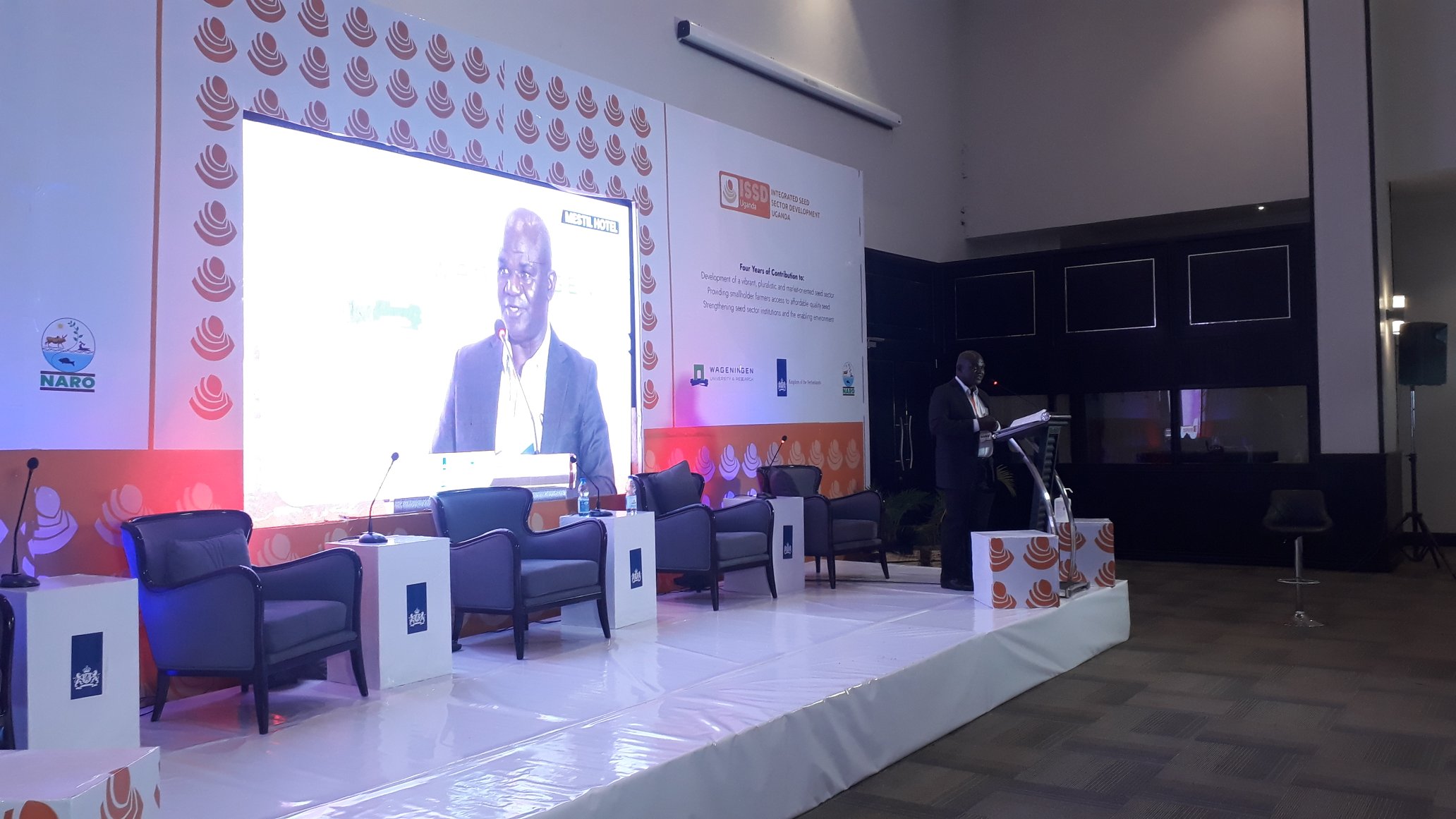
Many organisations have come up to see that Ugandan farmers and the National at large produces quality food and livestock products for a sustainable food market but most of all maintain Food security. Amongst the many is The Integrated Seed Sector Development (ISSD Plus) Uganda. Today, the 29th of April 2021, Jaguza Tech U Ltd, Ministry Agriculture, Animal Industry and Fisheries (MAAIF), National Agricultural Research Institute (NARO) alongside other stakeholders have joined to celebrate the close out celebration on ISSD (Plus ) Uganda project.
ISSD has for the past 8 years aimed at contributing to the development of a vibrant, pluralistic and market-oriented seed sector, providing over 300,000 smallholder farmers access to affordable quality seed of superior varieties and strengthen seed sector institutions and environment. ISSD works and has been working across the entire seed value chain. ISSD also has been recognising the importance of all seed classes. The project has been implemented by Wageningen Centre for Development Innovation (WCDI) in partnership with NARO and is funded by the Embassy of the Kingdom of the Netherlands in Uganda.
During its tenure ISSD have been driven by various goals as highlighted below;
– Sale of Quality Declared Seed (QDS) and Certified seed at convenient and diversified outlets (seed fairs, weekly village markets, agro-dealers)
– Creating awareness on the benefits of farmers using quality seed (road shows, demos, radio, TV etc.)
– Stimulating effective demand for quality seed among smallholder farmers through value chain integration, small packs seed sales and demand studies.
– Supporting and training additional LSBs (Local Seed Businesses) to produce and market Quality Declared Seed (QDS)
– Support LSBs to increase productivity and improve business management practices (training, innovation grants, LSB Associations, infrastructure grants, linking Business Development Services, Gender Action Learning System methodology etc.)
– Skilling farmers on improved vegetable production
– Variety demonstrations by the private sector;
– Pre-competitive in-depth farmer training on the use of advanced vegetable seed varieties by the private sector;
– Capacity building in the sector through training of sector professionals.
– Training, coaching and coordinating District Agricultural Officers in new zones on QDS regulation and quality assurance;
– Supporting development of decentralized seed testing capacities and many more achievements.
Through the support of ISSD plus project, 90% of Seed producers have been able to produce quality seeds over the past few years. ISSD has registered 4,200 Seed entrepreneurs in 63 districts of which 53% of these are women where as 24% are Youth.
With the help of its partners, ISSD has been able to develop a Digital Tracking Information system to enable tracing and tracking seeds along the Seed Value chain hence this will improve the competitiveness of Ugandan seeds on the global market.
59 Seed varieties have been disseminated through NARO and planted on over 205,000 hectares of land by 326,719 farmers.
ISSD has also been able to build capacity of a team of 147 vegetable sector professionals that continue to operate through a joint platform ‘Horticulture Sector Professional’s alliance (HOSPA)’. It has promoted quality vegetable varieties from Dutch seed companies to over 17,300 vegetable farmers through field days on demonstration sites and training events. It has implemented in partnership with 6 Dutch seed companies, reached over 7.8 million rural people through a mass media campaign on use of the quality vegetable varieties
53% of the vegetable farmers in locations of project operation have had knowledge of at least one of the quality vegetable varieties promoted by the project. Over 11,680 farmers were trained on advanced practices of vegetable production and by 2020, 23% of vegetable farmers in the areas of project operation had adopted the quality vegetable varieties.
All thanks goes to their key partners in Uganda, that is;
Ministry of Agriculture, Animal industries and Fisheries (MAAIF), National Agricultural Research organization (NARO) and its Zonal Agricultural Research Development Institutions (ZARDI), Local Sees Business (LSB) and Out-Scaling Partner (OSP) organizations, Private seed Sector, Vegetable breeding companies and their Ugandan representatives and Smallholder farmers including women and youth. Other partners outside Uganda include Syngenta, House of Seeds, Bejo, Enza zaden, East West Seed, Home Harvest, Holland GreenTech and Bakker brothers.
